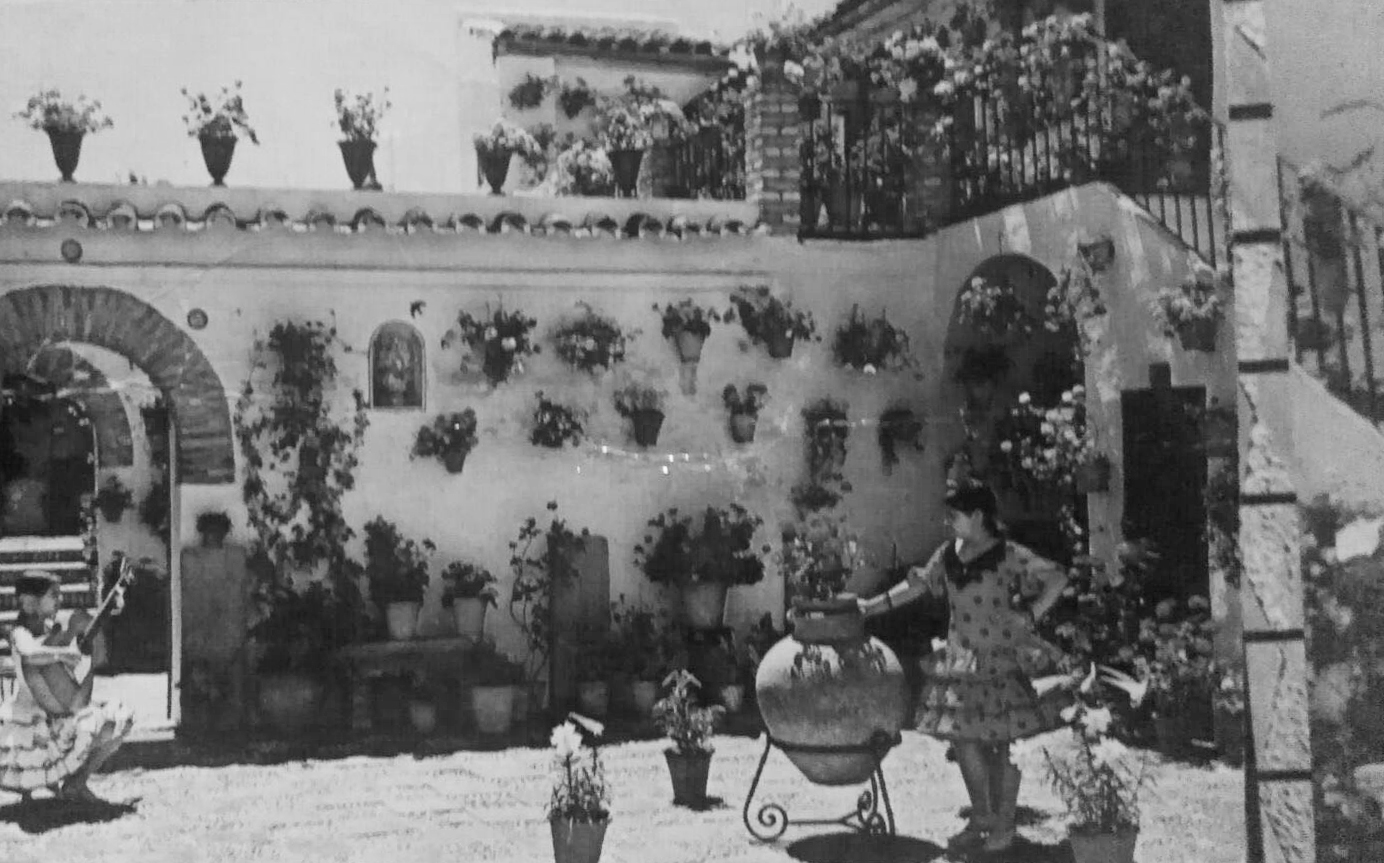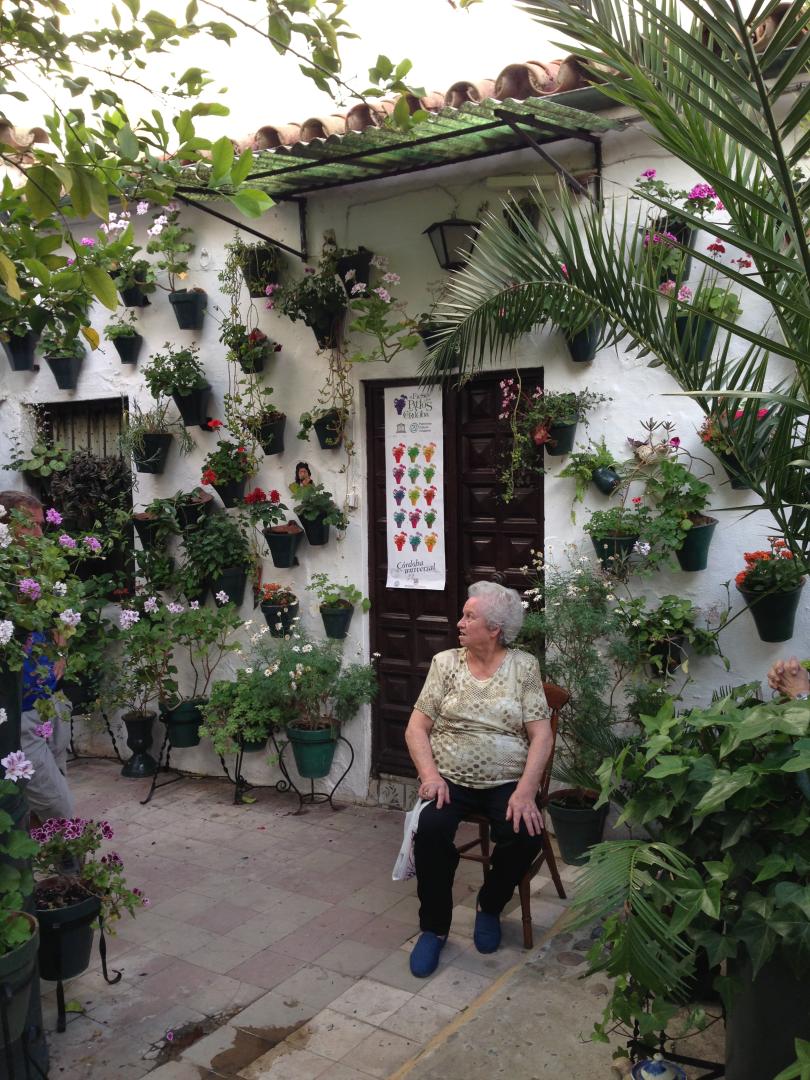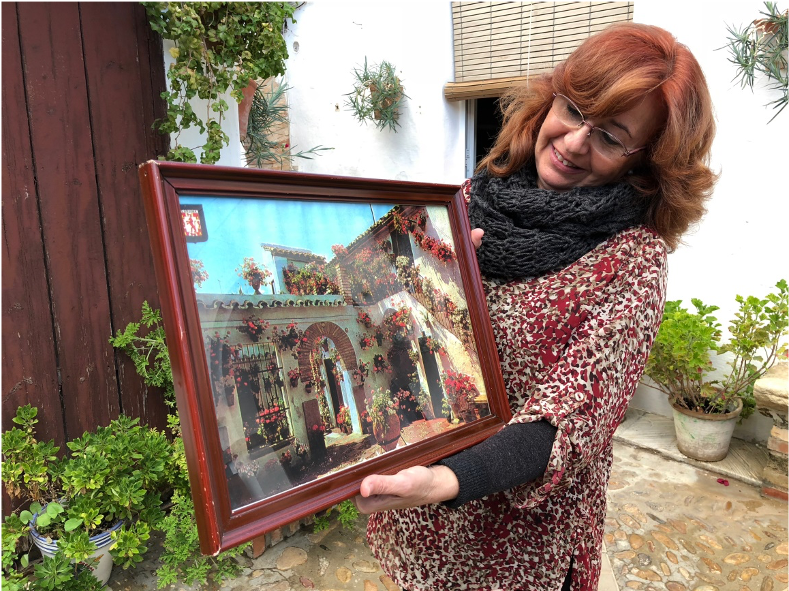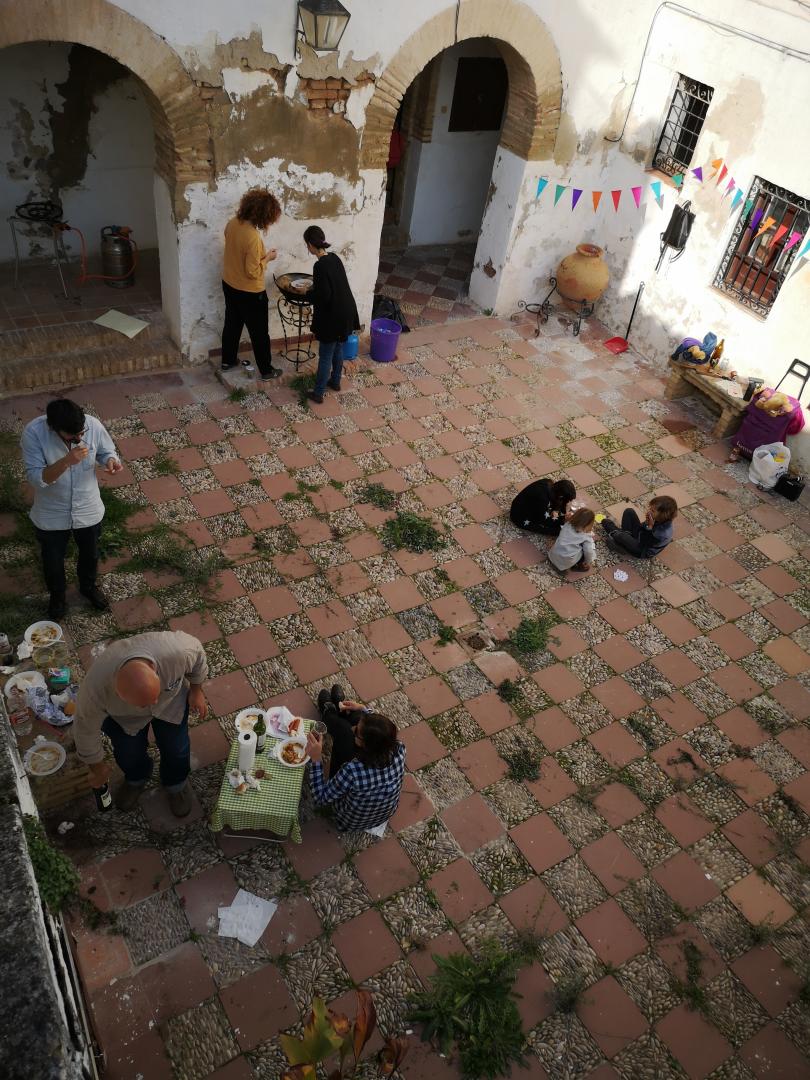PAX
Basic information
Project Title
Full project title
Category
Project Description
Based on the empowerment of citizens as managers of their habitat, PAX pursues a more socially and environmentally sustainable and energy-efficient model of the historical Mediterranean city adopting an integrated approach.
The rehabilitation of the empty patio-houses in Córdoba (Spain) aims to restore the environmental values of the Mediterranean city and upgrade its historical characteristics in a contemporary way together with the citizenship. Preserve a tangible and intangible heritage.
Geographical Scope
Project Region
Urban or rural issues
Physical or other transformations
EU Programme or fund
Which funds
Description of the project
Summary
Following a decades-long real estate bubble involving a culture of ownership and occupation of land in Spain, PAX-Patios de la Axerquía implements an innovative system of governance in Córdoba as a laboratory that fosters a new urban model consistent with the aims of a Smart, Sustainable and Inclusive City. A system of multilevel co-management with social economy provides the basis for the acquisition & cooperative use of empty historical courtyards as a model of urban regeneration through social innovation in an heritage context. The rehabilitation of the PATIO-houses in the islamic Axerquía neighborhood aims to restore the environmental values of the Mediterranean city and upgrade its historical characteristics in a contemporary way together with the Community.
Córdoba is the city in the world with more recognitions by UNESCO, which puts its Tangible and Intangible Heritage on the same level. Specifically, both dimensions of cultural heritage interweave in a particularly paradigmatic way in their patio-houses and neighbors' houses. This traditional typology of the city, result of its history, the climate, the sociocultural conditions, and especially the optimization of resources, has become obsolete as a result of a collective imaginary, which identifies the historic center where they are located (World Heritage 1994) with tourism, and the house-patio (Representative List of Intangible Heritage 2012) with poverty.
The abandonment of these traditional houses is not only generating an emptying of the historic center and the degradation of its remarkable architecture and urban space, but it is also loosing the traditional way of life: as an social and green cell, sharing a central patio between different families facilitates a unique way of relating, strengthening social ties and encouraging community life. PAX wants to preserve it, both in the material and immaterial heritage, thanks to the collective memory and the consolidation of an heritage community.
Key objectives for sustainability
As in the Domus and the islamic traditional Courtyards that caracterize the Medirterranean traditional architecture, PAX looks for a urban ecology through the densification of the historic city and reusing the patio as a social & green urban system. To ensure that Córdoba becomes a smart, sustainable, and inclusive city, PAX is promoting an integrated project aimed to reactivate the sustainability potential of the centre, thus avoiding tourism-focused gentrification and strengthening of passive measures for traditional architecture. The most sustainable building is the one which already exists, and the most sustainable city is one that does not occupy more territory, regenerates itself, and embraces its heritage, environmental, and social values as Mediterranean traditions. The presence in the historic city of many abandoned traditional houses, such as the casas-patio, requires innovative actions that ensure the reactivation of both the architectonic and the intangible heritage by promoting co-habitation in neighbourly homes. After the pandemic emergency, the patio is as a green space combines wellness and health, thanks to vegetation and social cohesion. PAX underlines that the Mediterranean city model as Córdoba can be strategic for the future : 1) promote a urbanism of proximity 2) allow the revegetation of the city within its porosity & patios, 3) needs new mechanisms & co-management with citizens as makers of their own habitat. PAX underlines the links between urban and social sustainability, tangible and intangible heritage, city and citizenship. Innovative governance will provide new green economy based on the existing heritage city and preserve social and cultural cohesion. Offering both a meeting place and an interior garden, the patio is not only urban and architectonical values, but as repeated social-green cells guarantee urban and social ecology.
Key objectives for aesthetics and quality
The pandemic underlined the need to live in better houses with open green spaces. The Courtyards of the historical city offer the opportunity to live in a beautiful heritage green and safe space that is more contemporary within the emergency of Covid.
The patios in Córdoba are a traditional example of how beauty can transcend strict functionality and, with very few resources, spaces can be created to fulfill their function, by appealing to feelings, as only art knows how to do. Without going any further, the patios are just, among other things, the support of the Festival of the patios, which emerged in 1921 as a strategy to encourage the collective embellishment of private spaces, although with a collective character, in the city. Its success and media pressure have, however, imposed a crystallization of the tradition, often imposing an aesthetic result that alludes to the past, against promoting the maintenance of the necessary conditions for the reproduction of the cultural practices that originated it.
PAX encourages a change in the collective imagination about patios: taste and sensitivity about beauty can be educated. Faced with the pretended exported image of patios, PAX promotes highlighting their essential material and immaterial virtues: the art of coexisting in spaces with pleasant scales and proportions to which citizens are already accustomed, introducing air, light and vegetation into domestic daily life, extracting the maximum potential of the intermediate spaces that multiply in the patio house.
Faced with the value of antiquity (romantic image), exchange value (real estate interest), PAX claims the value of use, also updating the image of the patios, turning them into living and current places, a reflection -cause and effect- of its inhabitants and their lifestyles, and not a museum of themselves. An important part of its beauty lies in that which is now capable of housing.
Key objectives for inclusion
As member of the Faro Convention Network of the Council of Europe, PAX facilitates the creation of an « Heritage Community », involving in a co-managment strategy public administration, university, civic society & citizenship on the urban scale.
Its main function in relation to this community is to serve as a trigger for the processes, and to accompany them, because the community must be the protagonist of its actions, agreed by its members, as makers of its own habitat.
On onehand, PAX facilitates the creation of housing cooperatives to reuse multifamiliar empty courtyards as a democratic and horizontal decision system. A new governance which involves citizens to restore housings and service cooperatives that update the anthropological value of patio-houses and create local micro-employment based on the local Community.
On the other, PAX promotes that sectors of the patio-houses could be reserved for social emergency collectives or refugees, commercial local activities, non-profit organisations, or sustainable and responsible tourism that generates an income for the cooperative. It looks for increasing a sustainable economy network, linked to the market for heritage restoration and local activities, all fo them to improve the residential uses.
In collaboration with neighborhood associations and other agents, PAX is carrying out an urban and social map, trying to identify both the material heritage that should be rescued, as well as citizen’s groups with the potential to join or contribute from their own experience to a process of urban regeneration such as the one proposed.
PAX first identified empty houses and organized local labs involving a range of stakeholders and citizens. After discussing the needs of each cooperative group, PAX helps to find the best patio-house so that the material heritage (the building) is a consequence of the intangible heritage (people's way of coexistence).
Results in relation to category
Among the various achievements made by PAX, we highlight the first pilot experiencerealized , with a housing cooperative in assignment of use. It consists in the rehabilitation of a fine 18th century patio in the heart of the Axerquía neighborhood within a group of six young families, interested in educating their children in a common space, based on the patio & its social and ecological dimension. The fantastic house, which won several prizes in the “Fiesta de los Patios”, used to house 18 families. Vacated in summer 2019, after the death of the old woman who lived alone there, it was acquired by the PAX Astronautas cooperative (constituted by 6 families) and has been restored as part of the PAX initiative. This ancient building is well known in the city and exemplifies what PAX does. On one hand, the renovation, in which careful attention is paid to understanding the building, is revealing layers of history, the passing of time, while its architectural beauty, with three patios, makes it look more like a peaceful landscape than an urban space. On the other hand, the group of six families who have joined the project recognizes the community value held in these walls, not only because this is one of the houses that have won most prizes in the Fiesta, but for the conviviality, the way of sharing life, which is one of the main motivations that led these families to join the project. Their intention, like that of the sisters, Isabel & Pilar, who sold them the building instead of accepting a higher offer from a hotel investor, is to enhance this community value and this way of life that takes them back to their childhood and can now live again, giving it a new meaning, with new generations.
How Citizens benefit
PAX works together with public & private entities to facilitate the multidisciplinary & multilevel aspects of its strategy and, above all, with the neighborhood associations & citizens groups: 1) to share a way of living around the patio, as the intangible value that brings them together as Heritage Community; 2) to identify the empty traditional patios as tangible heritage in Axerquia ; 3) with Local Labs, to create groups and set up a housing co-operative ; 4) accompany in the agreements to acquire the patio or persuade the owners to let PAX reuse them with the Community; 5) to implement the rehabilitation of patios in a contemporary way respecting their architectural value; 6)to finance the project in co-operation with ethical partners ; 7) to scale the strategy to other similar cities.
PAX shares investigations with the Cyprus Institute and a European Working Group (Dariah) developing Digital tools for crowdsourcing of information about Heritage (ICH), applied in Palermo in 2021 and in Cordoba in 2022. The Andalusian Institute of Historic Heritage IAPH collaborates to upgrade the Digital Atlas of ICH with the patios local users’ data (drawings, documents, narratives, photos) and to prepare training activities for the stakeholders, using traditional materials to rehabilitate the historical buildings. PAX shares with the University of Córdoba research about the patios from an anthropological view (1st International Congress about Patio, 2019) and about the rule of vegetation in the patio, as a Social-Green cell, to reduce CO2 and to the upgrade the health of inhabitants. The University of Seville researched with PAX on the Ecology of the patio-house, measuring its ecological benefits as a microclimate temperature moderator in a hot climate like the Mediterranean ones. With the Institute of Advanced Sociological Studies (CSIC), PAX is working on a map of gentrification in Córdoba using annual data on the residents and their demographic dynamics.
Physical or other transformations
Innovative character
The strategy of urban regeneration through cooperative processes aims to use the empty patio-houses in the historic centre of Córdoba to provide permanent accommodation for local residents. The potential to re-use the existing city, in terms of both its material and intangible heritage values through revitalising abandoned patio-houses in a central neighborhood that is earmarked for future gentrification, has provided the impetus to generate a bottom-up strategy in terms of housing policy, heritage, urban regeneration, and social cohesion by updating the use of the courtyards through cooperative processes. The housing cooperative is an instrument of the social solidarity economy that promotes co-housing for different groups of people. The constitution of a cooperative allows to build or rehabilitate a building as a collective property in which each person/family who is part of the cooperative has the right to use of a part of the building without owning the property. The unique feature of PAX compared with other housing cooperatives that have been established as an alternative to property ownership and rental agreements is that it operates in a high-value heritage environment, updating the coexistence that has traditionally characterised the Mediterranean city, and aims to operate as a neighbourhood urban cooperative that unites housing, rehabilitation, and service cooperatives to generate a local microeconomy.
Recently, PAX is being accelerating to be turned into an urban regeneration & social innovation startup, that could be useful in promoting these innovative tools about heritage, based on the case of Cordoba as a City Lab, but also including financial ethical entities in being part of the development of its purposes.
Learning transferred to other parties
PAX consideres Córdoba as a City lab and was devised as an innovative urban project and a model to be repeated in other areas in Córdoba and other similar cities, especially European and Mediterranean cities, based on urban regeneration through social innovation. The Axerquia neighbourhood, , is as the best place to test and experiment the governance involving local citizens opposed to its gentrification, but in the next future PAX will be repeated in other cityies in Andalusia and in Italy. Recognised as best practise and part of the Faro Convention Network by the Council of Europe in 2018 for applying social heritage values in an urban context, PAX can be repeated in other similar areas. So that was invited to the 15th International Architecture Exhibition La Biennale inVenice in 2016 and has been declared a ‘best practice’ project by the Madrid City Council for improving the social economy in a neighbourhood (2018).
In addition, the dissemination of the lessons learned is essential in achieving its ultimate goals: to achieve a change in the collective imagination that allows it to stop identifying the historical center solely with tertiary use, and house-patio with poverty. It is necessary to demolish certain topics, such as the fact that you cannot have a full life in the 21st century without depending on private transport, or that rehabilitating is always more expensive and with worse results than occupying a newly built home. PAX continuously participates in conferences and events, it is regularly present in the general and specific press, local and national, and, above all, empowers its members to act for the common good, serving as a loudspeaker to share, based on their own experience, this collective project that pursues a more beautiful, sustainable and inclusive Europe.




